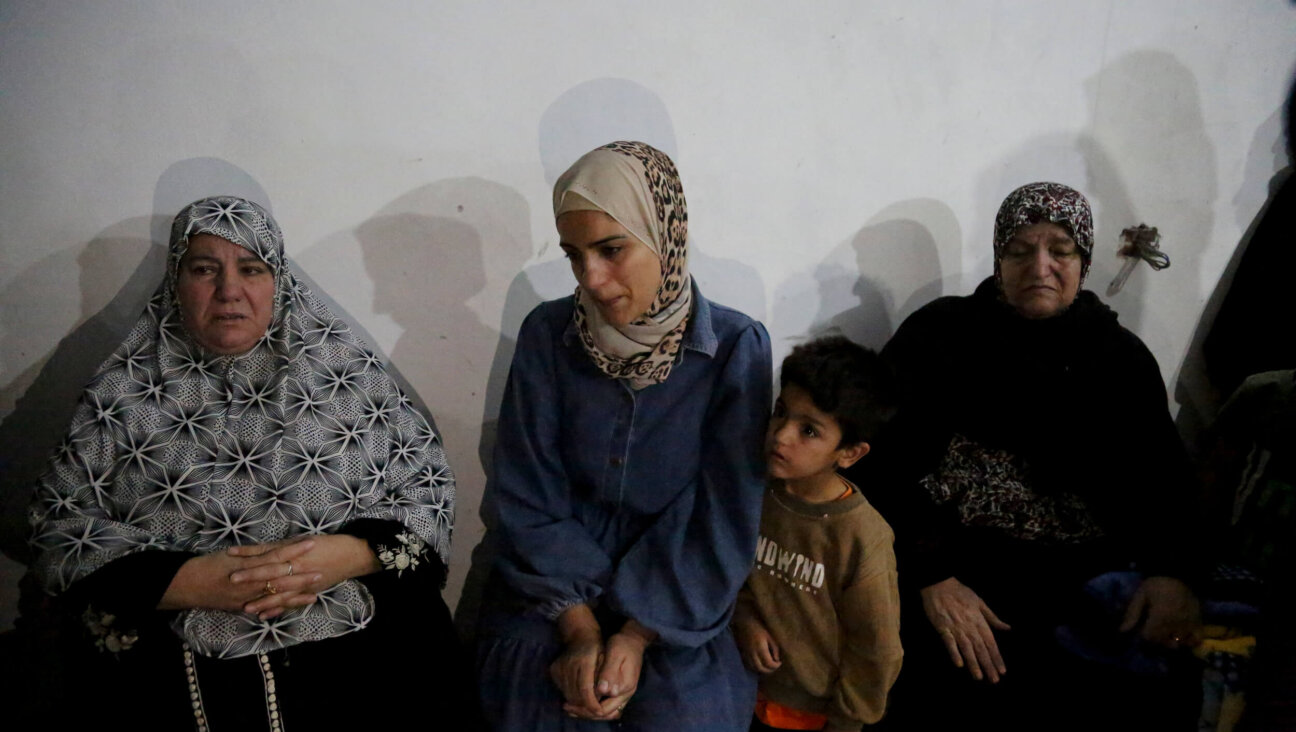Say No to the ‘C’

Graphic by Angelie Zaslavsky
Sign up for Forwarding the News, our essential morning briefing with trusted, nonpartisan news and analysis, curated by senior writer Benyamin Cohen.
Courtesy of Jennifer Margulis
According to a 2014 study by the Institute of Health Metrics and Evaluation, the United States is the only developed country with increasing rates of maternal mortality rates. And the World Health Organization reported that between 1990 and 2013, the maternal mortality rate increased from about 12 to 28 deaths per 100,000 births in the U.S. Journalist and researcher, Jennifer Margulis believes this is because America’s health care system is failing pregnant women.
Margulis is the author of six books on the topics of childcare, including her recently published “Your Baby, Your Way: Taking Charge of Your Pregnancy, Childbirth, and Parenting Decisions,” published by Simon and Schuster. A former Senior Fellow at the Schuster Institute for Investigative Journalism at Brandeis University, she has openly criticized the big business of childbirth and the soaring numbers of Caesarean sections in the United States.
The Boston native and daughter of scientists, Margulis, 45, has dedicated much of her career to researching the medical and business practices of childbirth and childcare in the United States. Her mother, famed microbiologist Lynn Margulis was married to astrophysicist Carl Sagan before meeting Margulis’s father, an X-ray crystallographer.
Margulis lives in Oregon with her Italian-American Catholic-raised husband, and their four children — who they are raising Jewish. With a master’s in comparative literature from U.C. Berkeley and a Ph.D. in English from Emory, Margulis dedicated her career to research.
Margulis spoke to the Forward’s Dorri Olds about her decision not to circumcise her son and other concerns.
Dorri Olds: Why are there are such high maternal death rates in the United States?
Jennifer Margulis:The first is the overuse of C-section births. A variety of studies confirm that a woman is two to four times more likely to die in childbirth from complications from a Caesarean section than from vaginal birth. As our C-section rates have climbed and now remain high — over a third of American births are by C-section — so do our maternal mortality rates. Women sometimes die unnecessarily because they don’t have access to surgical birth. But in America we’ve taken a lifesaving intervention and made it into a life-threatening intervention.
Another reason has to do with poverty in the U.S., which influences every aspect of a woman’s maternity care. Poor women, and especially poor women of color, are at higher risk of dying in childbirth — often because they do not have access to adequate care. This is not a failure on the part of these women, it is a failure by the medical system. It is important to realize that this is a social problem, not an individual problem.
What are the risks of a C-section?
A C-section has lifelong health consequences for the baby. Doctors don’t tell women that as they’re wheeling them in, suggesting an elective Caesarean for convenience. You can also get an infection, and if something goes wrong you can lose your fertility. Sometimes a C-section is medically necessary, but that’s a different story.
For the baby there are many problems. Doctors go in with sharp instruments, and thousands of babies are nicked during the surgery. Furthermore, when a baby is born via C-section they don’t get any of the beneficial bacteria from the mother’s birth canal or her good fecal bacteria. That bacterium sets your immune system for life.
Are you pro or con circumcision?
There’s a huge movement now called Beyond the Bris. It’s Jewish people choosing not to circumcise. What we used to think was a small, benign thing to do is really removing a lot of skin. Rebecca Wald, a Jewish lawyer in Florida, has written a book with a colleague about a ceremony called Brit Shalom. Instead of having a bris, you have a naming ceremony but leave the baby’s penis intact. Many Jews in America and Israel are choosing not to circumcise because they’re convinced that the harms outweigh the benefits.
The harm being the pain?
Babies feel pain, yet some hospitals give them no anesthesia. When the baby’s penis skin is cut, he loses erogenous tissue, taking away nerve endings that heighten sexuality and lessening the width and length of the penis. There are complications. The American Academy of Pediatrics came out with a task force analysis and issued a bogus and unscientific statement in 2012 that the benefits of circumcision outweigh the harms. They recommended that insurance companies pay for it, but the AAP never actually recommended the procedure.
As a journalist and researcher on this topic for over 10 years, it’s clear, based on scientific studies and doctors, the harms grossly outweigh the benefits, but the AAP disagrees with me. Many Jewish men are now saying, “The decision should’ve been ours.” What I told my son is, “You can make the choice to be circumcised once you’re 13.”
I thought circumcision was done for health reasons. Isn’t it better for men?
No, that’s not true. More than 70% of men worldwide are not circumcised. In countries that have nationalized medicine and made it not-for-profit, circumcisions went to almost zero. Men in Scandinavia and Spain, where fewer than 2% are circumcised, aren’t having more health problems than circumcised men.
This interview has been edited for style and length.
















